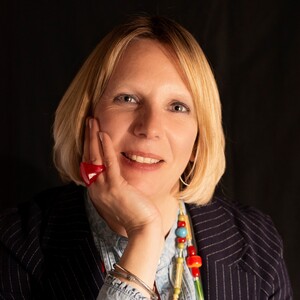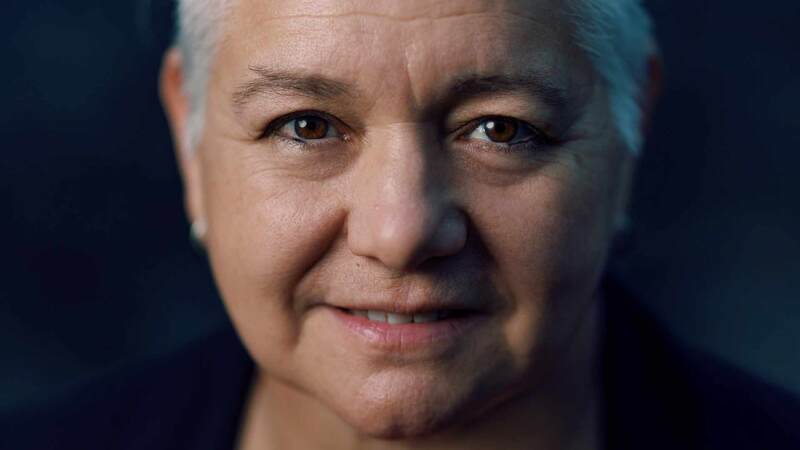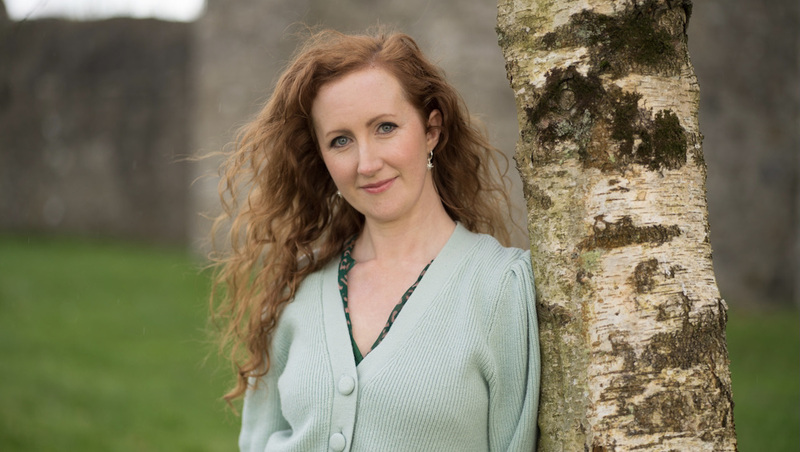You are viewing your 1 free article this month. Login to read more articles.
Wales Focus Q&A: Manon Steffan Ros

Caroline Sanderson is Associate Editor of The Bookseller, and since 2000, the magazine's non-fiction previewer. In 2022 she was Chair of ...more
Manon Steffan Ros talks about her new football-themed middle-grade, and the joy of moving between children’s and adult books—and languages.

Caroline Sanderson is Associate Editor of The Bookseller, and since 2000, the magazine's non-fiction previewer. In 2022 she was Chair of ...more
It’s a crying shame that Wales haven’t qualified for the Euros but wonderful that we have your new middle-grade novel, Me and Aaron Ramsey. Tell us what inspired it.
I’m a football fan, although I wasn’t always. I jumped on the bandwagon when Wales played in the Euros in 2016 and I remain onboard. Getting to know football fans and the communities they create has been fascinating and a source of great joy to me. It is so much more than a game. Me and Aaron Ramsey was originally written in Welsh. Ramsey is a great role model, always showing kindness and a team spirit. I know he’d appeal to the main character of my story because of his energy, warmth and incredible talent.
The story features a father who, despite being highly intelligent, struggled at school and never learned to read or write. What made you want to create such a character?
It’s very easy to think that illiteracy doesn’t exist in this country, because we don’t really talk about it. I used to feel very strongly that people think that intelligent people always do well at school, and that academic equals intelligence. As I get older, I’m realising that this isn’t the case. The character of the father is clever, cool and knowledgeable but doesn’t read or write. I hope he makes readers think of their own preconceptions about illiteracy.
I loved the character of Sam too, and the warm and honest first-person portrayal of family life. What tone do you try to strike when writing for middle-grade age?
I never consider a reader’s age when I’m writing. I think that all the books I’ve written could be for any age. I could elaborate on 100-word picture books and they could become adult novels; the 80,000-word sagas I’ve written could be boiled down as stories for a child. I trust children with any story; their lives are complicated and sometimes difficult and sometimes joyous—all of those things need to be reflected in the books that we write for them.
Tell us about Feather, your new middle-grade novel coming from Firefly in September 2024.
I wrote Pluen, the original Welsh version of Feather, when someone close to me was coming to the end of living with dementia. In a way, I wrote it to get my head around the experience of witnessing that. It’s very personal, and though I translated it myself, it has been completely rewritten. The relationship between the main character and his grandmother was one I wanted to explore, because those relationships have been so important, enriching and formative for me.
You won the 2023 Yoto Carnegie Medal for The Blue Book of Nebo. What has been the effect of that win, both on your career and on you as a writer?
I am still a bit in shock, and still absolutely overjoyed. It’s been a real honour, and quite surreal to see the characters in the book, who don’t ever move from their small area of North Wales, travelling in books all over the world. Winning has created so many new relationships for me as a writer—the wonderful community of librarians that adore children’s literature, schools and readers. It’s also created a momentum around my work which is both exhilarating and terrifying.
Many Welsh writers are incredibly versatile—you write books for children and adults and you are also a dramatist and former actress. Why do you think this is?
This is one of the many wonderful things about writing in Welsh: you’re not confined to a box as a creative person. Because we’re a minoritised language, and although there are truly brilliant books published in Wales, there aren’t as many as there are in English. So, people who read in Welsh tend to read almost everything that’s published. You may have a reader enjoying a crime thriller, a book about botanics and a YA fantasy novel. Readers don’t stick to one genre, and neither do writers. It’s very liberating.
What else are you working on currently that you can tell us about?
I have a crime novel coming out in the autumn called Greta and I’m very excited about it. It was originally published in Welsh, and it’s about the way we hide our true selves behind societal norms, and about how much influence the class system has on how people are treated in the UK. It’s very different from The Blue Book of Nebo and Me and Aaron Ramsey, so I’m excited/terrified about the reaction. I’m also working on another YA novel that has been scratching away in my mind like a twig on a window, so we’ll see where that goes.
Me and Aaron Ramsey Firefly Press, out now, pb, £7.99, 9781915444493









